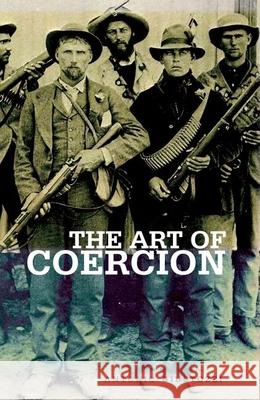Art of Coercion: The Primitive Accumulation and Management of Coercive Power » książka
Art of Coercion: The Primitive Accumulation and Management of Coercive Power
ISBN-13: 9780199327416 / Angielski / Twarda / 2011 / 256 str.
In today's dominant discourse of liberal interventionism, the role of coercion and the monopoly of violence have been neglected, argues Antonio Giustozzi, an analyst justly renowned for his research and writing on the Taliban. It is widely assumed that a functional, liberal state can emerge out of a political settlement between warring parties based on political inclusiveness and a social contract, which involves pressuring political actors to reach a deal. But the post-Cold war experience of such deals has been so disappointing that a re-examination of these 'certainties' is warranted. Giustozzi contends that a key source of such flawed analyses is widespread confusion over what state formation and state-building involve. In his view, completely different 'rules of the game' apply to the two. Naked coercion is a key component of state formation, and very few states were formed without recourse to it. In contrast, the history of state consolidation after their initial formation is one of taming violence and creating increasingly sophisticated way of managing it.The Art of Coercion offers a new approach to thinking about the role of security forces, in their broadest sense, in this transition between state formation and state-building. While focussing largely on the nineteenth and twentieth centuries, Giustozzi discusses coercive power throughout history, from the Carolingian empire to the Boer War, from Zapata's Mexico to China's Warring States. He scrutinises the role of armies, guerrilla bands, mercenaries, police forces and intelligence services, analyses why some coups fail and some succeed, and examines the ways in which the monopoly of violence decays.











